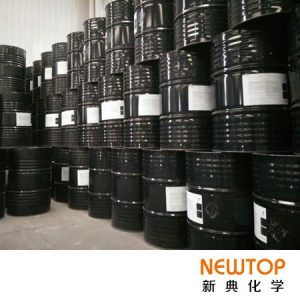Full water foaming
Overview:
The reaction of water and isocyanate to generate carbon dioxide gas for foaming is the initial foaming technology used in the polyurethane foaming process. Water is the cheapest and most convenient chemical The foaming agent for foam molding has always played an extremely important role in the polyurethane foaming process.
Using foam as a foaming agent is the most important and earliest foaming agent used in the preparation of polyurethane foams. Water reacts with isocyanate to produce carbon dioxide gas, sound field urea group.
According to the findings of basic research, k2>k1, the reaction rate of carbon dioxide is slower than the reaction rate of urea group, in order to increase and control the rate of carbon dioxide generation , It is necessary to add an adapted catalyst. Using water as the foaming agent for polyurethane foam is inexpensive and without any pollution, and the foaming agent for foams produced by carbon dioxide is inexpensive and without any pollution, and the foams produced by carbon dioxide have a high porosity. From these points of view, it is a very ideal blowing agent. However, it has been found in use that there are still the following problems with water as a foaming agent.
①Whoever uses it as the foaming agent can reduce the density of the foam to a certain extent, but it has poor hand feeling. As shown in the following reaction, the greater the amount of water, the more urea-based rigid groups will be formed in the polymer chain, and the greater the density, the more rigid the foam will produce, which is very unfavorable for flexible polyurethane foams. .
②The greater the amount of water added, the more intense the reaction exotherm. In addition, the polyurethane foam has good thermal insulation performance, low thermal conductivity, and a large amount of heat accumulates in the foam. , Causing the core of the foam to turn yellow, scorching, and even spontaneous combustion, causing a fire house. For the production of low-density bulk foam, it is prone to danger.
③Water is a kind of blocking agent. It is the main function of isocyanate reaction to produce carbon dioxide gas, but not the significant increase of polyurethane molecular chain. In addition, from an economic point of view, although water is a very cheap substance, it can consume a large amount of expensive isocyanate, that is, 1mol of water will consume 9.67molTDI and 13.9molMDI, and the reaction cost is very high.
| Full water foam | Full water foaming technology | Full water foaming process | High flame retardant full water foam | Full water foaming polyurethane technology | Polyurethane full water foam |
Shelf Life:
Keep it unopened for two years
Storage and transportation:
Should be sealed and stored in a dry, cool and ventilated warehouse

Full water foaming, full water foaming technology, full water foaming technology, high flame retardant, full water foaming, full water foaming, polyurethane technology, polyurethane full water foaming
Packaging:
200KG/bucket Storage: It is recommended to store in a dry and cool area with proper ventilation. After the original packaging, please fasten the packaging cover as soon as possible to prevent the product performance from being mixed with other substances such as waterproof grade. Store in a cool, dry place, keep the container tightly closed, and avoid contact with oxides. Do not inhale dust and avoid contact with skin and mucous membranes. Smoking, eating and drinking are prohibited in the workplace. After work, take a shower and change clothes. Store contaminated clothes separately and use them after washing. Maintain good hygiene habits. The company recommends that all polyurethane catalysts be stored in a dry and cool place with proper ventilation. All storage containers must be well sealed to avoid contact with water or other influential substances, as this may change the performance of the product in use. The storage temperature is 10°C to 30°C. Lower or higher temperatures are inappropriate and should be avoided as much as possible.


